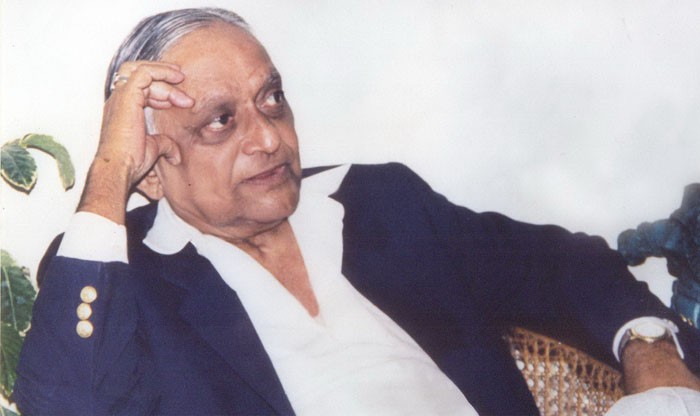

Those enchanted evenings where novices like me could hone their skills by sharing a toast with the learned and the accomplished have long left our press clubs. But we, the products of those evenings, are still around to tell the story.
It was the start of the depressing decade of 1980s. The cacophony of General Ziaul Haq’s martial law was at its loudest. Writing work in newspaper had become a mere formality. The real battle of the pen was being fought on the streets and in the press clubs.
Those were times when young journalists like me only knew three parts of the Karachi Press Club (KPC) -- canteen, Ibrahim Jalees Hall, and the terrace outside it. Our activities mostly revolved around the most famous slogan of those times -- "tere saath jeena, tere saath marna, Minhaj Barna, Minhaj Barna’ (we’ll live with you, we’ll die with you, O Minhaj Barna). Barna was then leader of the journalists’ resistance to the military regime.
The Club’s legendary first floor was out-of-bounds for the likes of me, due to paucity of both confidence and pocket money. The bar was lowered for me, so to say, when I was elected secretary of the KPC in 1982.
The good news was broken to me by Abdul Hameed Chhapra, an elder and a buddy, a fearless journalist and an unparalleled trade unionist. He took me by the elbow, dragged me to one corner, and whispered, "This evening you will join the drinkers at the tavern in their prayers to the Venuses of this world."
It was this introduction to the first floor that qualified me to sit alongside such icons of professional excellence as Minhaj Barna, Salim Aasmi -- and some years later, the elegant and suave ABS Jafri.
I met ABS in the late 1980s, when General Ziaul Haq was killed in an air-crash and he returned to Pakistan from a decade-long exile in Kuwait.
In those days, he would show up on the first floor around early afternoon and leave before nightfall. He had a spotless white ensemble: a white starched shirt, white pants and white pump-shoes, and neatly combed salt-and-pepper hair. Perhaps by coincidence, the drink in his glass also used to be invariably white.
Sadly, by that time his voice had sunk to whispers, following a throat surgery in Kuwait. But his spirit was unvanquished, and so was his large-heartedness which often came out unmistakably in his demeanour. He would wave a junior like me over to his table, ask him to take a chair, make a carefully measured drink for him, and then, leaning forward, quote a couplet from Mirza Ghalib in the whisper that his voice had become:
Phir dekhiye andaz-e-gul afshaniye guftar,
Rakh de koi paimana-e-sehba mere aage.
(Place a cup of red wine before me, and then watch how my speech scatters roses).
It always did a miracle. As he drank on, his whispers would begin to bloom, and classic poetry would begin to flow smooth and easy. He had a particular liking for Ghalib, and seemed to remember nearly everything the great classic poet had ever written. There are dozens of Ghalib’s couplets that I first heard from ABS, and 20 years later, they still echo in my mind when I recall his face.
While ABS had seen off the best part of his life and work by then, he had by no means ceased to be productive. In the late 1990s, he came up with one of his best books, Shehr-e-Arzoo. Besides, every week the country’s main newspapers carried his columns.
It was only around the year 2000 -- when the media became increasingly free and print journalism was replaced by the sphinxes of electronic media -- that ABS and his tribe began to phase out. What a galaxy it had been; Zamir Niazi, Nisar Usmani, Minhaj Barna, Aslam Sheikh, I.H. Rashid, Paikar Naqvi, M.A. Mansoori, Salim Aasmi, Ahmad Hasan Alvi.
Today, how many of us remember the guy who underwent a sentence of lashes for demanding freedom of the press? I had to think hard to remember his name -- Masoodullah Khan of the Pakistan Times. So it is no surprise if the new generation does not remember ABS, a journalist from the Partition era.
He started out as a reporter at a news agency in Delhi in June 1947, and was assigned to cover Pakistan’s independence in Karachi. Within a couple of years, he became Pakistan’s first foreign correspondent with a posting in Delhi. He joined the Pakistan Times in 1958 and went on to become its editor. In 1977, after the military coup, he went into exile and later became the editor of Kuwait Times.
After General Ziaul Haq’s death in an air crash in 1988, ABS returned to Pakistan and became the editor of Islamabad-based newspaper, The Muslim. He also edited Pakistan Observer for some time.
His book, Shehr-e-Arzoo, is a testament to his journalistic excellence. We know today what depths of darkness the people of Karachi have been pushed into. He knew it 15 years ago. The title of the book carried another one of those amazingly prophetic couplets from Ghalib:
Gar yunhi rota raha Ghalib tau aye ahl-e-jahan,
Dekhna in bastiyon ko tum ke weeran hogaeen.
(O people of the world, if Ghalib continued to weep like this, you will witness ruination of these towns).
But the leaders of today’s media, the self-important anchorpersons of dozens of TV channels, including myself, don’t know, rather don’t want to know, about ABS and others like him. Few of them know that the freedom of expression that they take for granted today is beholden to the bloodied fingers of ABS and his tribe of the pen.